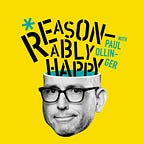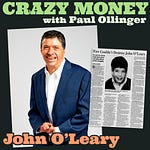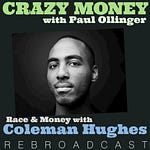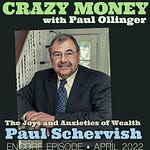Rob Henderson’s dad walked out when Rob was an infant. Not long after, Rob’s drug-addicted mother placed him into the foster care system and a near-constant cycle of neglect and displacement.
According to his 2024 book, Troubled, Rob lived in nine different foster homes before his 8th birthday. This takes a toll on a kid, as Rob’s memoir reveals.
“By the time I was four or five, my emotions had gone underground,” he writes about the self-preservation defense that kicked in amidst the chaos.
So, it probably wouldn’t surprise you that Rob was drinking before he was six years old, doing drugs at twelve, getting into fights, committing vandalism, and harboring little hope for a future beyond high school.
What will surprise you is that, despite all the trauma, Rob eventually graduated from Yale and earned a PhD from University of Cambridge. Yes, that Cambridge—the one in England.
Rob vs. the Odds
Only 3% of children who go through the foster system in the U.S. graduate from college. Allow me to do the math: that’s a paltry THREE kids out of 100! But as Rob told me on this week’s Reasonably Happy podcast (see above), it’s not really the missing degrees that matter. For those who grow up in unstable environments, it’s the fractured self-worth and deep-seated belief that they don’t deserve to be loved.
This shaky personal foundation has consequences for their prospects in adulthood. As he writes in Troubled, “After years of maltreatment, (kids like me) often have little desire to improve their lives.”
Even if they go on to achieve outward success, there’s still something missing. He elaborates, “A warm, loving family is worth infinitely more than the money or credentials I hoped might compensate for them.”
Luxury Beliefs
One of the concepts Rob introduces in his book is “Luxury Beliefs,” which he defines as “ideas and opinions that confer status on the affluent while often inflicting costs on the less fortunate members of society.”
For example, among the educated classes (okay, okay — the elites!), it is widely considered bad manners to believe that one family structure, e.g. the “Western-prescribed nuclear family,” is superior to any other. Yet—on average—children raised in two-parent homes:
Demonstrate lower rates of behavioral issues and emotional stress.
Have fewer disciplinary problems and interactions with the juvenile justice system (especially for boys raised without a father).
Engage in much less risky behavior.
Graduate from high school and attend college at much higher rates.
Achieve higher earnings and financial stability in adulthood.
This is, by no means, to judge the single parents who give it their all. Yet just for pointing out the impact of family structure on children in her book Two Parent Privilege, University of Maryland Economics Professor Melissa Kearney was excoriated by her academic peers. (Listen to my conversation with Melissa here.)
As Rob might remind us, these academics focus more on fealty to the orthodoxy of non-judgment than on its real-life impact on kids raised like he was. Notably, they tend to co-head two-parent homes themselves, at least in part because they know that stable homes are much more likely to breed stable children.
It’s in the Water
After a few years getting his shit together in the Air Force, Rob arrived on Yale’s campus where he encountered classmates he described as having “a potent blend of victimhood and superiority.” Knowing nothing about his childhood deprivation, some labeled him as privileged based solely on his gender and his relative lack of pigment (he’s half Mexican and half Korean, btw).
These students weren’t born thinking this way. But after years marinating in the stew of Luxury Beliefs at prestigious high schools and then on the Yale campus itself, they grew ignorant to their own biases and made dangerous assumptions based on the wildly incomplete data of discernible identity.
It’s time to turn this thinking around. We can lead with love and acceptance without letting go of practical, if inconvenient, realities. If we truly want to break multi-generational cycles of poverty and economic instability—as the elites would be first and loudest to profess they do—we must recognize that the best way to prepare the next generation is to make kids feel safe. Not in theory, in reality.
Of course, government initiatives can also provide valuable assistance. Economic support for low-income families, job training programs, and criminal justice reform could all make a difference. But as Rob’s childhood demonstrates, Uncle Sam won’t come to a kid’s house and read to him at night or give her a hug when she skins her knee. That job can only be done by loving human parents.
I’m grateful to Rob for sharing his story, a testament that the American Dream is still alive. But for every three Robs, there are 97 other human beings who never made it out. Their lives are proof of an ongoing American Nightmare. Luxury Beliefs won’t bring it to an end.
If you prefer to listen on a podcast app, please check out ‘Reasonably Happy’ on Apple Podcasts or click here for Spotify














